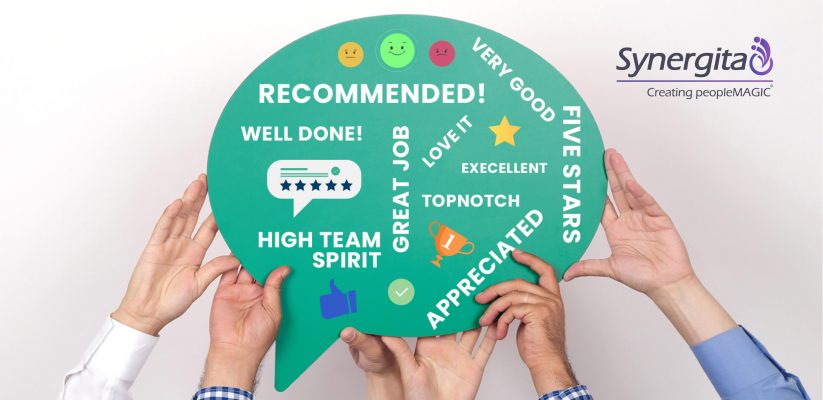Constructive Feedback for Performance Review Management Systems
Employees’ performance review management systems revolve around employee engagement and feedback because they are pivotal for success. An employee-centric organization will invest in robust performance review systems and enjoy a high employee retention rate. Fortunately, modern review management has evolved due to employee expectations and emerging technologies, and organizations can use performance management tools to ensure that their performance reviews processes are always effective.
Here are a few essential characteristics of performance review systems:
- Clarity must be given to the employee about the performance review process.
- Employees must know what is expected of them.
- Two-way communication between employees and their evaluators.
- Continuous 360-degree feedback and follow-through at each stage.
- Recognition of achievements and goals and rewards programs.
Is Performance Review Management Important?
Incorporating performance review solutions in an organization is simple. But, implementing it for optimum results can be a challenge. The organization, including the managers and employees, must understand the role of a review system. As part of the process, employees and managers must know what they can gain from performance review system, for instance:
Improved Communication Between Management and Employees
Communication is key to removing barriers between managers and their direct reports. Two-way communication provides feedback on employee performance, and it also creates a platform for support. It is a forum where the employee can express concerns and ask for mentorship. And, it opens up the possibility for the employer to step in and plan training where required.
Discovering Areas of Improvement in Employees
Employees of an organization are its most important asset. They are selected based on their skill level and the need of the project. They are expected to perform optimally. However, some may be wrong hires or have skills that can be used elsewhere. Regular evaluation of employee performance will help employers discover the strengths and weaknesses of the employees and course-correct when needed. It allows employers to reassign roles and responsibilities based on individual skill sets and skill levels.
Reward and Recognition
Performance management review must be a space where employees are recognized for their contribution. Not all forms of recognition may be compensation-oriented. But, a well-planned rewards program that is also transparent across all employees is an ideal way to keep employees engaged and motivated.
Knowing the characteristics and what an organization as a whole can gain from an employee performance review system makes sense only if organizations know how to use the tool effectively.
How to manage performance review systems for optimum results?
performance management review process is essential for success, i.e., everyone in the organization is on board with it and will execute it effectively. Therefore, a few best practices must be put in place. For instance,
Explain the process and its benefits to the employees
Employees will gain greater trust in the organization when they have a clear idea of the evaluation process. Taking them through the system lets them know your expectations and how their performance will be measured.
Train the Managers on the Performance Review System
The first step of any new system is to ensure that the users know how to navigate the performance review management software tool. Once they get the hang of it, they will find it easier to train others, making it the only way to enhance performance reviews.
Clarify the Rewards and Recognition Program
Most employees don’t restrict themselves to the usual 8-hours workday. They tend to spend long hours and are rarely recognized for the extra mile they go. Organizations must value their contributions and reward them accordingly. Transparency and visibility of such recognition would also boost the team’s morale.
Follow-through after review
Employee growth does not stop with the review process. It only shows them where and how they can grow personally and professionally. Regular feedback should be followed up with mentorship, guiding the employees along their career paths.
Frequent and Timely Reviews
Employers and employees can benefit from holding frequent and timely reviews. It makes the reviews integral to their work-life instead of drawing excessive attention to the process. Instead of being nerve-racking, they look forward to it as they see it as an opportunity to share ideas and learn from their managers.
Negative Feedback can’t be Avoided
It is impossible to avoid negative feedback. However, the word ‘negative’ has unpleasant connotations. A sound performance review system is better when it uses different terminology. After all, it is feedback, except that it shows areas where there are gaps between employee performance and employer expectations. Helping employees understand that feedback may not always be positive and that criticism is healthy can ensure that your performance review system is accepted wholeheartedly.
Wrapping up
Employee performance review systems can be the tool that binds the employees to your organization. Only those who feel that the organization treats them fairly will wish to stay with the company. A well-implemented system will help retain the high performers and also raise the performance bar of the rest of the employees.

Relevant Articles:
